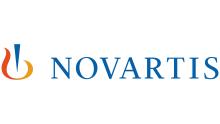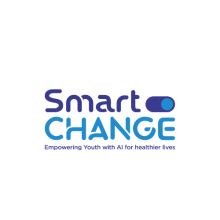A Science|Business Network public conference (09:15-12:45)
Since the publication of Ursula von der Leyen’s political guidelines in July 2024, increasing competitiveness has become a mantra across the EU policy landscape, along with ‘closing the gap’ with the US and China in strategic industries and technologies. In this context, life sciences – and in particular human health and bio-based domains – could prove to be a key litmus test of Europe’s ability to achieve its wider goals. Many of the foundation blocks are in place for life sciences to power a new age of industrial leadership and performance in Europe, not least through leveraging its world-class research institutions and infrastructures. Yet it is widely acknowledged that Europe consistently falls short in leveraging these assets to deliver cutting-edge products and services to market – due to a well-known host of issues ranging from regulatory, legislative and pricing complexity to fragmented R&I, data and investment ecosystems. Meanwhile, another key variable for the future remains the outcome of final negotiations on the EU’s new ‘pharma package’, and the degree to which it will help or hinder innovation in one of Europe’s most valuable sectors.
Against this backdrop, the European Commission has launched a “Choose Europe for life sciences” strategy that aims to make the continent the preferred destination for talent, capital and innovation by 2030. To achieve this, various measures are foreseen to optimise the R&I ecosystem, smooth the pathways to market for novel products and solutions, and boost the uptake of health- and bio-oriented innovation. In parallel, policymakers are looking at removing other structural barriers, with a ‘single market’ for clinical trials and data sharing high on the list.
Nonetheless, the EU’s objectives cannot be removed from the global context – one in which the US administration appears set on disrupting not just markets and supply chains, but also multilateral initiatives to tackle current and future health crises and global science collaboration platforms. In that regard, it is equally important to reflect on how the life science strategy will shape Europe’s future alliances with like-minded countries elsewhere in the world, and how that may contribute to wider interests around competitiveness, preparedness and security.
For life science stakeholders, therefore, actions will matter more than words if Europe is to regain its position as the world’s most attractive destination – and partner – for research, commercialisation and manufacturing. Against this backdrop, a number of strategic questions arise: what are the structural changes and conditions needed to optimise the R&I ecosystem, and how can those be achieved? How can research value chains themselves be strengthened? Will the strategy – and other initiatives such as the Biotech Act – inspire more innovative models of funding and/or science-to-business partnership? Can the ‘One Health’ approach help to deliver greater synergies between life science programmes and equivalents in domains such as AI and climate? And in light of the US’s withdrawal from the global arena, should Europe embrace a new model of life science diplomacy to fill the void?
On October 16th, Science|Business will bring together high-level experts from across the research & innovation spectrum and policy makers to discuss how the EU competitiveness mantra can be best applied to across the life sciences value chain, from lab to the global market.
8:45 REGISTRATION AND COFFEE
9:15 WELCOME & OPENING REMARKS
- Simon Pickard, Network Director, Science|Business
09:20 Keynote speech: Full speed ahead: What next for Europe’s life science strategy in pursuit of enhanced competitiveness?
- Maria Pilar Aguar Fernández, Director, People: Health & Society, DG RTD, European Commission
09:30 Litmus test: How to reinvigorate Europe’s clinical trials ecosystem?
One of the most frequently cited indicators of Europe’s diminishing attractiveness for life science R&D investment is its share of global clinical trials, which has shrunk from over 25% to 19.3% in the past decade alone. This session will focus on the challenge of reversing this trend, and what it will take for Europe to (re)establish its position as a priority location for testing and launching new medicines to market. Among the topics for consideration: how to remove barriers to conducting cross-border and multi-country trials? What kind of regulatory innovations and investment incentives would move the needle for potential trial sponsors? And how to create a more integrated framework for testing combine medical products and devices in a clinical setting?
A panel discussion featuring:
- Maria Pilar Aguar Fernández, Director, People: Health & Society, DG RTD, European Commission
- Clara Hellner, Presidential Advisor, Life Sciences, Karolinska Institutet
- Tomislav Sokol, Member, European Parliament
- Martin O'Kane, Regional Head, Regulatory Affairs EU Policy & Liaison, Novartis
- Marianne Pilgaard, Chief Executive Officer, Trial Nation
Supported by Novartis
10:30 COFFEE BREAK
11:00 Missing links: How to optimise the life sciences innovation value chain?
This session will explore the “system upgrades” that the Commission and member-states will need to prioritise in the biomedical research landscape, connecting all key stakeholders in the process of developing novel and affordable treatments and technologies that bring direct benefit to patients, health systems and economies around the world. In light of Europe’s competitiveness and post-COVID health agendas, what are the resources, collaborative models, expertise and innovations required to turbo-charge the conversion of fundamental science into next generation, market-shaping applications?
- Jonathan Ewbank, Director General, European Research Infrastructure on Highly Pathogenic Agents
- Niklas Blomberg, Executive Director, Innovative Health Initiative
- Lara Pandya, Team Leader, Strategic Partnerships and Communications, Global Health EDCTP3
- Nancy Cottigny, Member, Board of Directors, Biovia
11:45 Unlocking Europe’s potential: Does AI hold the key for boosting competitiveness?
While many accept that Europe has little chance to rival the US and China in various domains of artificial intelligence (AI), its application within the world of research – and notably in health and life sciences – is one area where Europe has a realistic opportunity for global leadership. As the EU’s flagship digital initiatives move towards full operational status – in particular the AI Factories and European Health Data Space – the fusion of advanced AI with world-beating infrastructures and frontier research talent could ‘supercharge’ the translation of breakthrough science into market-shaping health innovation, treatments and technologies. So where should the EU focus to optimise its competitive advantages? And how can AI-driven solutions be mainstreamed more effectively into healthcare systems and industry value chains?
- Anca Scortariu, Deputy Head of Unit, AI in Health and Life Sciences, DG CNECT, European Commission
- Plamena Markova, Chief of International Relations, European Molecular Biology Laboratory
- Carl Moons, Full Professor, UMC Utrecht
- Martijn Vastenburg, Founder and Managing Director, ConnectedCare
- Robin Lemmens, Professor and Head, Specialised Programme Academic Consultants, KU Leuven
Supported by SmartCHANGE
12:45 END OF CONFERENCE, FOLLOWED BY A NETWORKING LUNCH













Registration is available at the button below.
For any questions, don't hesitate to get in touch with [email protected]




 A unique international forum for public research organisations and companies to connect their external engagement with strategic interests around their R&D system.
A unique international forum for public research organisations and companies to connect their external engagement with strategic interests around their R&D system.